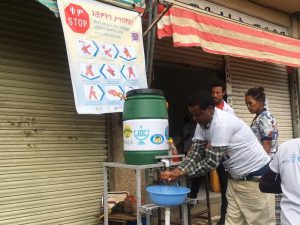Partnership for the Goals


Home » Partnership for the Goals » SDG 17-Probe & Improve – Part 3
SDG 17-Probe & Improve – Part 3
As we’ve already seen in the first two parts of this series, government sources lean toward often blistering self-criticism when examining their own areas of responsibility. That doesn’t mean, of course, that independent views are unnecessary, far from it.
Take, for instance, the Citizen’s Empowerment Center in Israel (CECI), which monitors government progress toward social and political change. It recently looked into implementation of Government Resolution 922 to empower the Arab community’s economy – an issue we’ve referred to here on a number of occasions.
Under the heading “Why can’t the government work for us?” on its Facebook page (Hebrew), the CECI notes a number of weaknesses – including: partial use of budget allocations; difficulties on the part of local authorities to implement complex and expensive measures; and delays caused by the political and economic crises of the past two years. The organization’s bottom line: out of 63 Resolution clauses, 27 were fully implemented, 22 partially and 14 not at all; in monetary terms, 13 billion shekels of the original 15 billion shekel allocation are expected to be utilized by year’s end.


Independent scrutiny is definitely not relegated to government activity; the private sector is also very much a target. One monitoring body in this context that we find particularly intriguing is “Maala”, a center promoting Corporate Social Responsibility (CSR). Among its various activities to move the needle, since 2003 the organization has been publishing an annual index – the new 2021 index is just out in English – that it views as “an assessment tool benchmarking Israeli companies on their corporate social responsibility performance.”
The index surveys close to 200 major firms – including leading banks, insurance companies, manufacturers, high-tech, infrastructure and utilities suppliers as well as medical service providers. These are evaluated on a 1-10 scale (10 being the highest) in accordance with such CSR parameters as organizational ethics and core values, diversity and inclusion, responsible procurement, community contribution, social involvement of employees, environmental sustainability, corporate governance, as well as social and environmental management and reporting.
Just to illustrate, let’s take a quick look at how the new report graded the diversity and inclusion parameter for some companies that may sound familiar: Strauss Group – 10; Osem Nestle – 10; Proctor & Gamble Israel – 10; Unilever Israel – 10; Bank Leumi – 9; Israel Electric Corporation – 9; Manpower Israel – 8; Teva – 8; Netafim – 8; Zim – 8; the RAFAEL defense company – 6; Intel Israel – 5; Microsoft Israel – 3; 3M Israel – 2.
“Maala” also sends out regular updates on new CSR reports from the private sector.
We’re glad to see Israeli watchdogs making sure that the commitment to social impact is implemented in a concrete way. Without them, even the best of intentions are liable to remain just lip service.
Related articles


SDG 17- GivingWay to Something Bigger than Yourself
Partnership for the Goals Volunteerism is one of the hottest trends today. For proof, one need look no further than the GivingWay website, boasting over


SDG 17- Helping the World Fight Corona
Partnership for the Goals Social Impact Under Corona – Part Four Read: Part One, Part Two, Part Three, Part Five, Part Six While Israel is understandably


SDG 17-Economic Diplomacy Promotes Israeli Achievements on the Global Agenda
Partnership for the Goals The use of digital technologies to facilitate accessibility of services, reduce social gaps and assist those with special needs is par


















